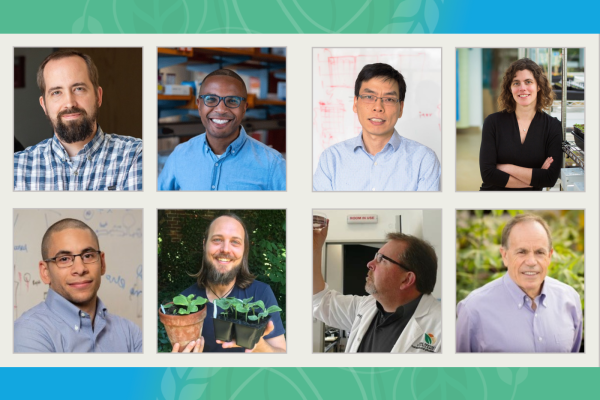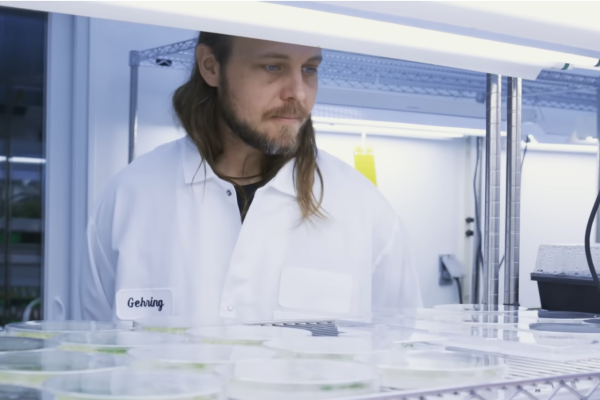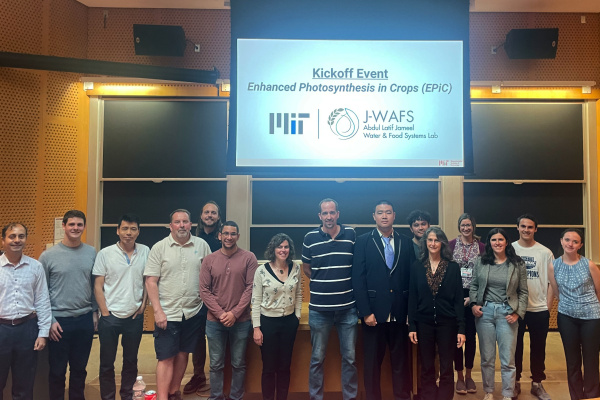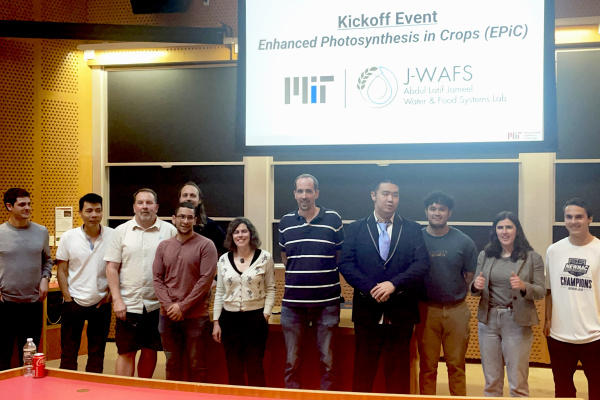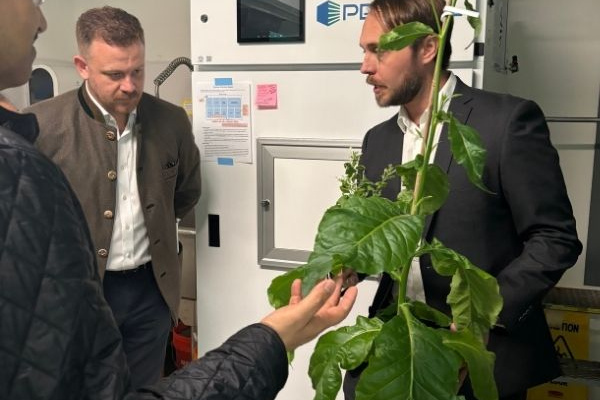Our Research Enhanced photosynthesis in crops (EPiC)
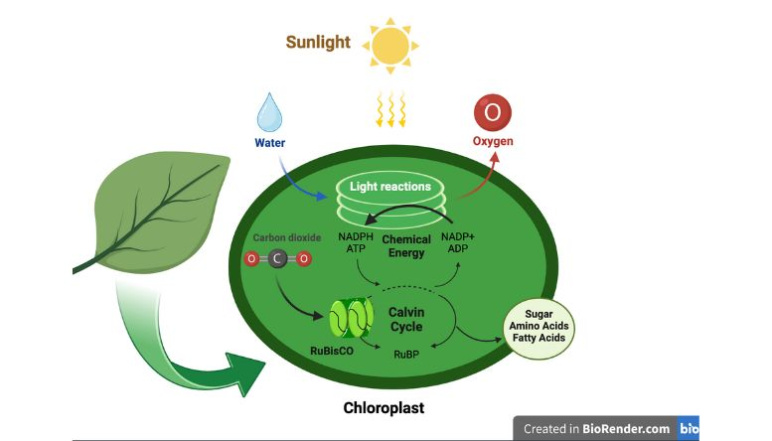
RuBisCO is a photosynthetic enzyme found in the chloroplast of all land plants. This enzyme reacts with carbon dioxide which enables sugars and by extension amino acid and fat synthesis for plant growth. Created in BioRender.
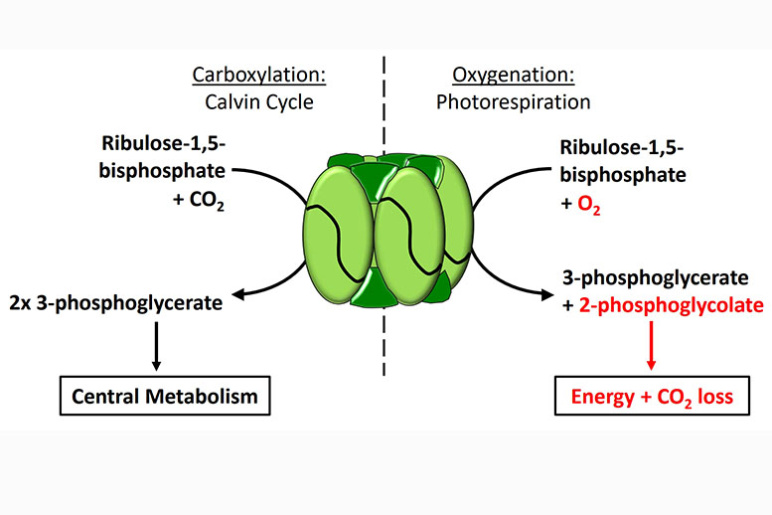
RuBisCO also reacts with oxygen which leads to photorespiration and is energetically costly, causing loss of fixed carbon dioxide. Reduction in oxygenation by Rubisco is a key objective of the EPiC platform.
Principal Investigators
Matt Shoulders
- Professor
- Department of Chemistry
Mary Gehring
- Professor
- Department of Biology
- Whitehead Institute
Bin Zhang
- Pfizer-Laubach Career Development Associate Professor of Chemistry
- Department of Chemistry
Bryan Bryson
- Associate Professor
- Department of Biological Engineering
Robert Wilson
- Research Scientist
- Department of Chemistry
Challenge:
Can we enhance and provide climate resilience to agriculture by improving the most inefficient aspect of photosynthesis?
Research Strategy
- Identify improvements to the enzyme Ribulose-1,5-Bisphosphate Carboxylase/Oxygenase (RuBisCO) through a multidisciplinary engineering approach that uses directed evolution, artificial intelligence, and molecular simulations
- Improve enzyme specificity for CO2 over O2 to limit photorespiration
- Use staged expression pipelines from bacteria to vascular plants to characterize RuBisCO variants and validate mutants
- Stable transformation of C3 crops and assessment of yield improvements using field trials
Project description
Increasing food demand from a growing human population places constant pressure on agriculture to become more productive. At the same time, temperature increases and climate change threaten the stability, efficiency, and resource use of crop plants. The Enhanced Photosynthesis in Crops (EPiC) initiative at MIT aims to rapidly increase the yields of major crops and provide future climate resiliency to agriculture.
A core limiting aspect of photosynthesis is poor carbon dioxide (CO2) fixation efficiency by the enzyme RuBisCO. The slow action of RuBisCO limits plant yields and can even result in the loss of CO2 it has previously captured. This situation becomes even worse with rising temperatures and therefore crop CO2 fixation is expected to further limit crop yields as the climate warms. Conversely, even minor improvements to RuBisCO function would benefit crop yields and major improvements could completely transform agriculture and protect crop losses.
Unfortunately, both scientists and nature have struggled to adapt RuBisCO to the demands of the modern crop plant. A new and concerted effort spearheaded by EPiC aims to change this landscape. EPiC is a multidisciplinary and international team of scientists focused on the grand challenge of improving RuBisCO. The most advanced tools in molecular biology and computer science will be used to identify, predict, install, and screen improvements to RuBisCO’s kinetic activity using high-throughput pipelines. By using the latest tools in crop engineering, these improvements will be delivered into a range of agriculturally significant crops for field trials. This comprehensive lab-to-land project will mark the most advanced effort to take on the longstanding grand challenge of RuBisCO.
The team at MIT will work with outside collaborators Spencer Whitney, a professor from The Australian National University, and Ahmed Badran, an assistant professor at the Scripps Research Institute. A milestone-based collaboration will also take place with Stephen Long, a professor from the University of Illinois at Urbana-Champaign.
Publications
In vivo directed evolution of an ultrafast Rubisco from a semianaerobic environment imparts oxygen resistance
Julie L. McDonald, Nathan P. Shapiro, Amanuella A. Mengiste, Sarah Kaines, Spencer M. Whitney, Robert H. Wilson, and Matthew D. Shoulders, PNAS, 2025
News
Additional Details
Impact Areas
- Food
- Climate & Sustainability
Research Themes
- Sustainability & Adaptation
- Soil Fertility & Crop Productivity
Year Funded
- 2023
Grant Type
- Grand Challenge Grant
Status
- Ongoing





